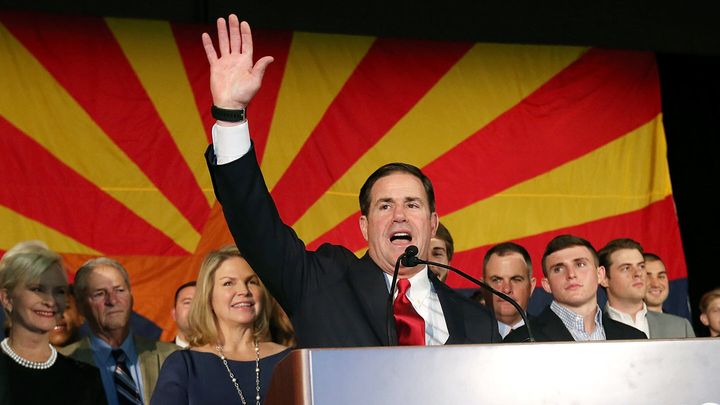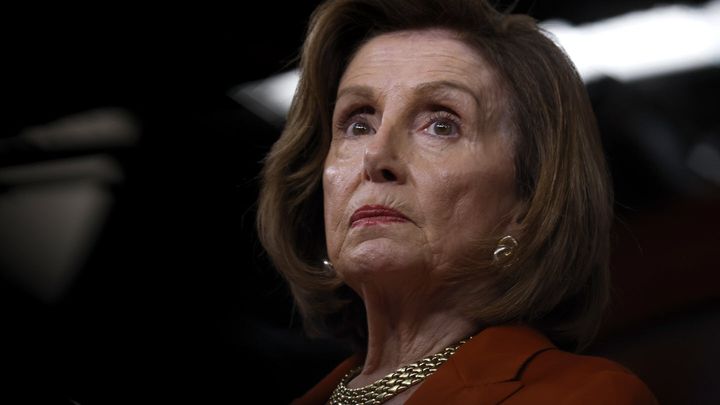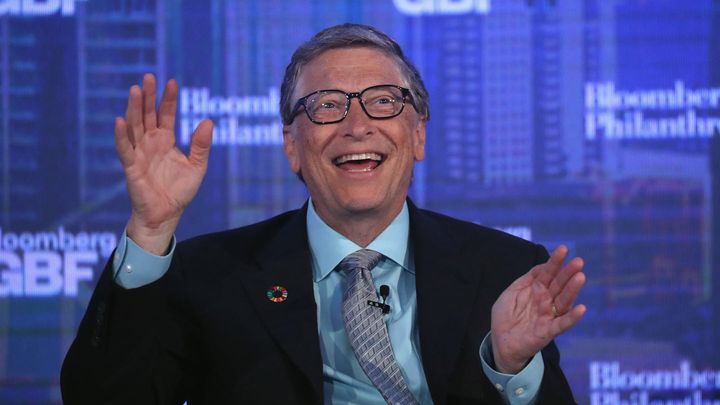Campaign finance laws throughout the country generally require political donors to be disclosed, but it’s usually not difficult for individuals and corporations that would prefer to keep their identities secret to dodge those rules. By setting up a 501(c)(4) “social welfare” nonprofit organization, money from undisclosed sources can be funneled to independent expenditures backing candidates because nonprofits are not required to disclose their donors.
This happens at a vast scale and it has allowed roughly $1 billion in dark money to be spent on elections in the past decade, partly because the Internal Revenue Service has not been stopping political actors from misusing nonprofit charity status. Social welfare nonprofits are not allowed under IRS guidelines to have politics be their “primary activity,” but the IRS has not been actively enforcing this rule. Not a single nonprofit had their status revoked due to violating the political activity prohibition from 2015 to April 2019, according to a ProPublica investigation, despite a surge of political spending by nonprofits during that period.
States don’t have to accept the IRS’ inaction on nonprofits in order to police dark money in their elections. In Arizona, the Citizens Clean Elections Commission, which enforces the state’s campaign finance laws, finalized rules in December 2017 allowing itself to demand records from social welfare groups spending on politics in the state to check whether they are properly designated as non-disclosing groups. If the commission determined groups were abusing their nonprofit status by being primarily focused on politics, it could force them to publicly disclose their donors.
But last week, on Sept. 29, an Arizona appeals court reinstated a 2016 Republican law that prohibits the commission from questioning if dark money groups should have to disclose. The law, which was sponsored by Republican Sen. Adam Driggs and passed in the legislature with zero Democratic votes, requires the commission to defer to the IRS, stating that entities with a “tax exempt status under section 501(a) of the internal revenue code” are “not organized for the primary purpose of influencing an election,” and thus can’t be forced to disclose their donors under campaign finance laws.
The appellees, comprised of good government group Arizona Advocacy Network and the Citizens Clean Election Commission, argued that deferring to the IRS to determine if groups are primarily focused on activities besides politics undermines or indirectly amends the purpose of state’s clean election law that was approved by voters on the ballot in 1998. The court, however, determined that relying solely on IRS designation “neither directly nor indirectly impacts the substance of the [law].”
The appeals court’s ruling was not entirely hostile to transparency in election spending. The court upheld a portion of the appellees’ challenge to the 2016 law, agreeing with a lower court that the legislature had no right to limit the Citizens Clean Elections Commission to only require reporting from outside spending groups that target candidates that have opted in to the state’s campaign public financing program. By agreeing to throw out that provision, the appeals court is allowing the commission to force all outside groups like nonprofits and super PACs to at least publicly disclose their spending.
Joe Edman, the executive director of the Arizona Advocacy Network, called the reinstatement of parts of the Republican law “deeply disturbing.”
“While we appreciate the court’s recognition of the critical role the Clean Elections Commission plays in protecting our democracy, the court’s ruling also gave the seal of approval to various legal loopholes created by the Arizona legislature for the sake of allowing unlimited amounts of corporate money to flow into our elections,” said Edman. “This is a deeply disturbing result on the eve of an historic election, and should be a reminder to voters that we badly need systemic reforms if our democracy is going to reflect the will of the people.”
The judge who wrote the opinion, David Gass, was appointed by Arizona’s Republican Gov. Doug Ducey, who signed the 2017 law. Ducey was initially elected in 2014 after millions of dollars was spent to back him by nonprofits tied to Sean Noble, who at the time was a key player in operating the Koch brothers’ web of dark money group known as the “Kochtopus.”
Dark money has become a major factor in Arizona politics in recent years. According to a 2016 report from The Brennan Center for Justice, dark money spending exploded in the state in the prior decade, from a total of $35,000 in the 2006 election cycle to $600,000 in the 2010 cycle, to a whopping $10.3 million in the 2014 cycle. In the six states the Brennan Center examined, Arizona saw by far the biggest surge in dark money. The amount of dark money spent in Arizona’s 2014 elections was 295 times as much as the amount spent in 2006, a far larger increase than the 34% rise in dark money seen at the federal level over that period.
The Brennan Center’s Chisun Lee, deputy director in the organization’s election reform program, told Sludge that dark money in local elections poses a risk of corruption.
“If voters can’t know whose money is really behind the innocuous names of ad-sponsoring organizations, they can’t properly evaluate those messages,” Lee said. “That problem can be even worse in local elections, where voters may not start out knowing much about candidates or unusual issues. And if there is ample opportunity for secret donors to woo or threaten officeholders, who make policy, with election ads, the risk of government corruption is serious.”
Lee says that an entity’s primary purpose should not be the only thing policymakers consider when determining which groups have to disclose their donors.
“It helps when transparency laws look at the type and degree of a particular act that voters need to know about—say, significant spending on ads that mention a candidate’s name close to an election—rather than just the purpose of an organization,” said Lee. “A huge organization’s election advertising could be just a fraction of what that organization mainly does. But if that fraction is still a significant amount, that is enough to influence voters. That election spending’s origins shouldn’t be kept secret just because the organization can say election spending isn’t its main purpose.”
Read more from Sludge:
Dark Money Floods in to State Elections, Revealing Cracks in Disclosure Laws
‘It’s a Secret, a (c)(4) Is a Secret’: Dark Money Powers $60 Million Bribery Scheme in Ohio
Big Donors and PACs Dominate Campaign Funding in Nearly Every State, Report Finds



